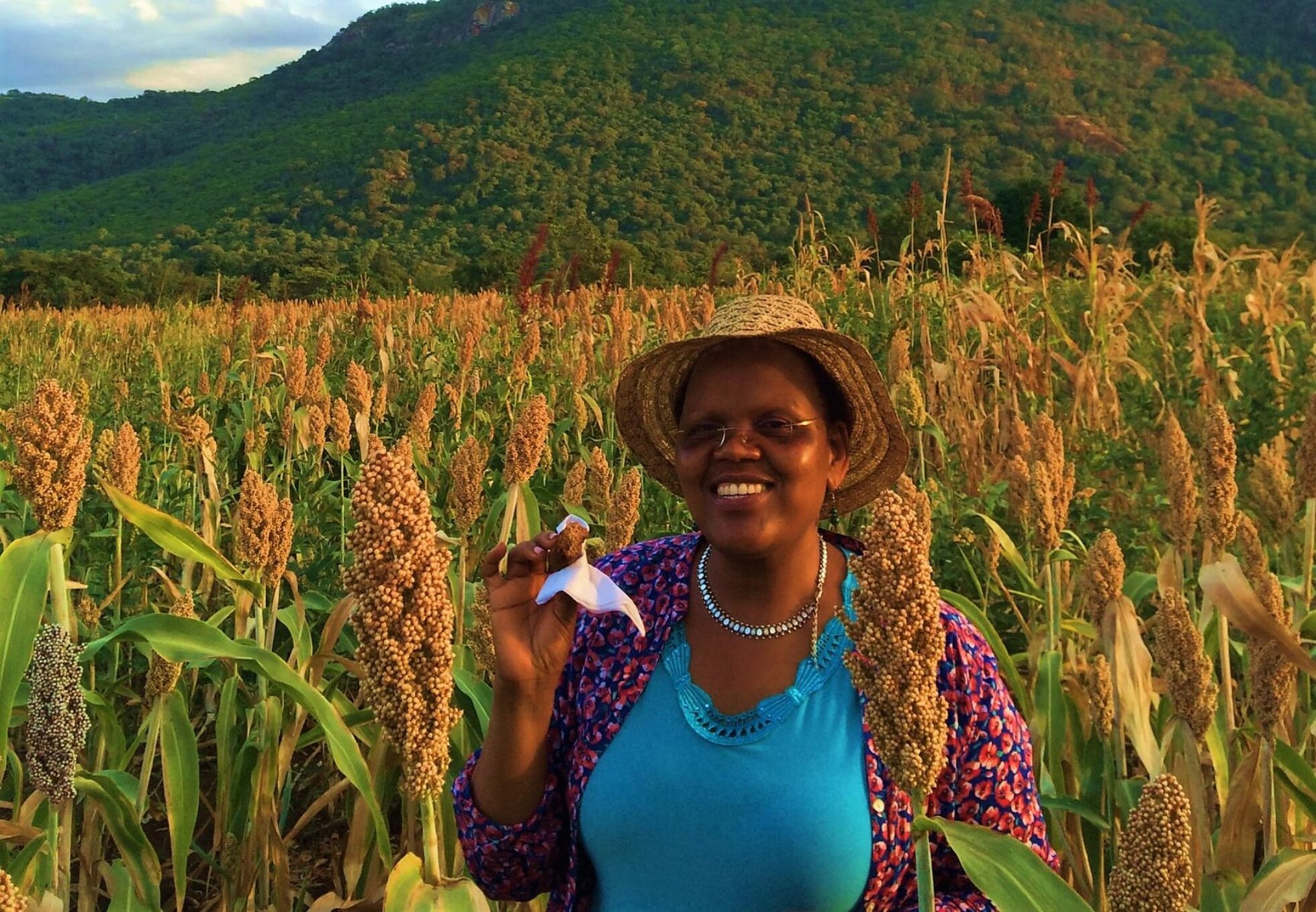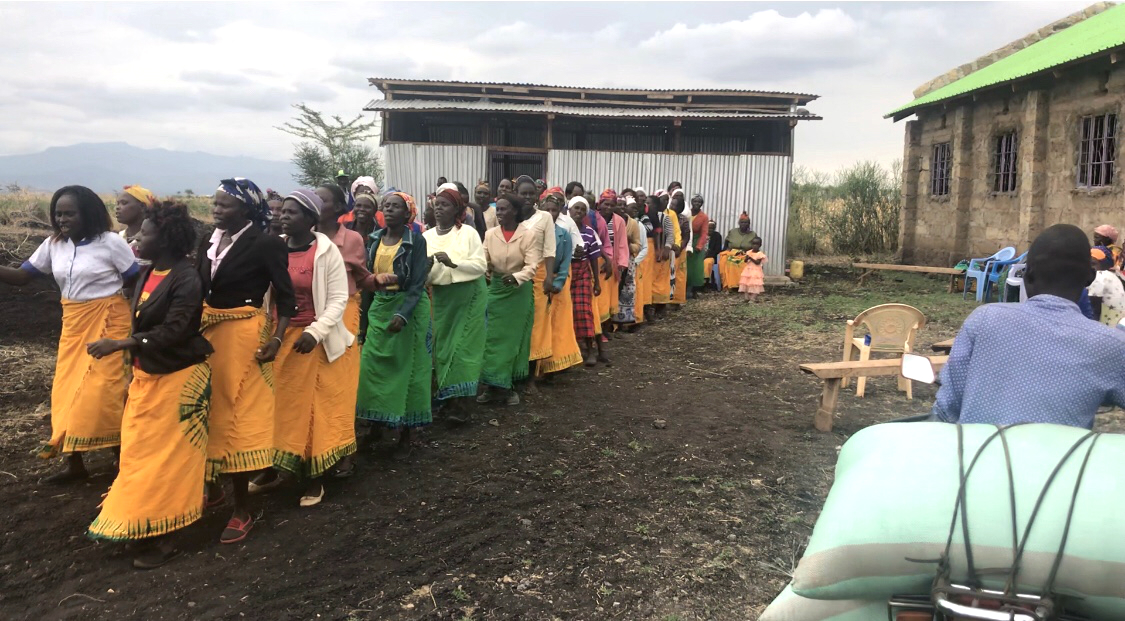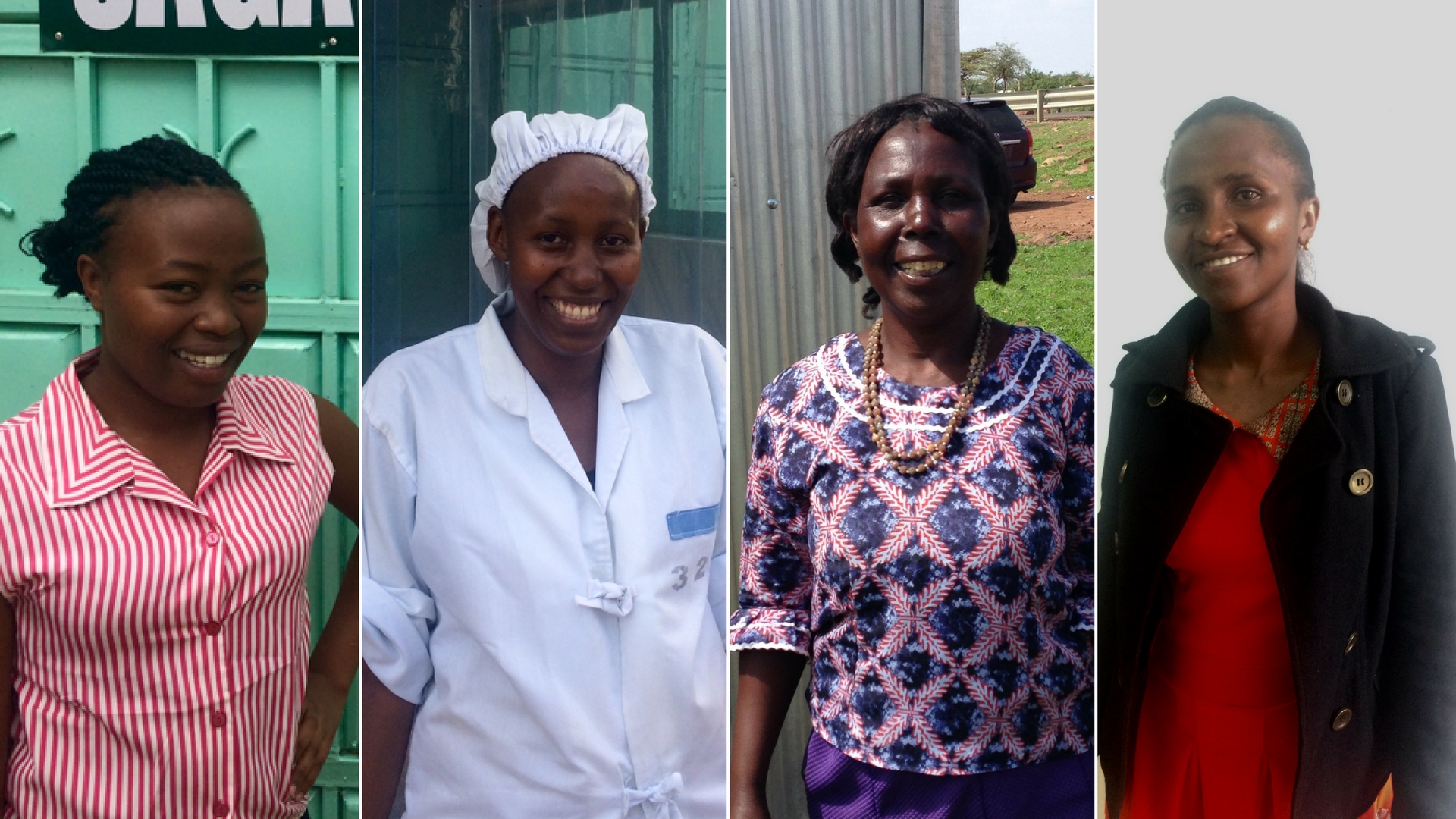Shalem Investments: Overcoming Barriers for Women Farmers in Kenya

With rains less predictable and growing seasons in flux, an old agribusiness adage is increasing in relevance for enterprises that work with rural smallholders: What’s good for the farmer is good for the business.
When The Rain Doesn’t Come, Women Pay the Price
This is particularly true for Shalem Investments. A grain aggregator located in the Meru region of Kenya, Shalem purchases and processes beans, soya, millet, and sorghum from 7,000 producers. All of these crops were badly affected by drought in 2016—jeopardizing the livelihoods of the farmers who grow them.
“In this area, weather patterns are really affecting our farmers. For years we have been saying the conditions are changing, but now we are feeling it firsthand.”Christine Kanana, manager of Shalem’s Gender Equity Grant
Climate change and market fluctuations particularly affect Meru’s women, who represent the bulk of Shalem’s farmers. Christine explains: “Last year the land was almost bare; they didn’t cultivate because they were scared of bad weather again. The lack of inputs and secure storage facilities, and inconsistent markets, also keep women from planting much.”

Investing in Gender-Inclusive Solutions
For many rural businesses, access to credit can make all the difference. But in cases where women anchor the supply chain, it pays to go the extra mile.
In partnership with the IKEA Foundation, the Wagner Family Foundation, and leading gender research organization Value for Women, we created a Gender Equity Grants program to maximize the impact of our highest-performing gender-inclusive businesses. These grants of $20,000 don’t replace loans; they complement them by funding programs that advance women’s participation, skills, and leadership. The $1.2 million in credit that we’ve offered Shalem since 2014 has allowed the business to pay its farmers well and on time; the Gender Equity Grant, in turn, allows the business to look critically at the barriers women farmers face—and think creatively about how to solve them.
After an in-depth analysis of these barriers and opportunities, Shalem leveraged its GEG to offer crop insurance and training on sustainable agricultural practices to contracted farmers. Together, these gave women farmers the safety net—and increased confidence—that they needed to try growing new, drought-tolerant crops that ultimately provide better yields. Shalem also used the GEG to help groups of farmers establish their own savings and credit circles, which help individuals invest in additional income-generating activities and resources. Since participating in these GEG-funded programs, women report greater control over their finances.
“In the interior areas, women see bank loans as an ambiguous process. They don’t even know how or where to start. But since setting up the VSL [village savings and loan] groups they can easily access the credit they need to move ahead…We don’t want them to cook chapatti forever.”Christine Kanana, manager of Shalem’s Gender Equity Grant
Shalem also used GEG funds to construct two collection centers with digital platform scales. Previously, women had to travel long distances to find a market, or stand by the roadside and wait until nighttime for middlemen to buy their crops using rigged hanging scales. In addition to the greater effort and costs involved, women often faced the danger of violence, theft, or crop damage from rains. Now, Shalem contracts directly with farmer committees that manage the collection centers, saving time and transportation costs for the farmers and the business alike. With this arrangement, Sylveria Nkui, a lead farmer who oversees one of the facilities, is confident about the future: “If today Shalem was supposed to come for the produce and they are not able to come, we can keep our crops inside and sleep here with our things. This is a small town; even with no watchmen, we feel safe.”

What’s Good for the Farmer is Good for the Business
In Shalem’s case, a relatively small grant made a huge difference. By leveraging just $20,000 to invest in its farmers, the business was able to offer smallholders the peace of mind that a market for their crops will be readily accessible. In the face of shifting weather patterns that threaten agribusiness across East Africa, Shalem’s farmers report rising confidence in everything from their farms to their finances. And their actions prove it. According to Christine, “women who used to think it risky are now confident to grow with us. They even ask for seeds, fertilizers, and other inputs.”
And it’s not just the farmers who benefit from the GEG-funded trainings and resources. By investing in farmer livelihoods, Shalem is able to secure a larger and more reliable supply of grains. With just a small amount of support, they’ve unlocked big opportunities for women and the business.
This story was produced with inputs from an assessment conducted by Shelley Martin, Gender Inclusion Specialist at Value for Women, and funded by Wagner Foundation.
Information in this client profile is up-to-date as of publishing time.